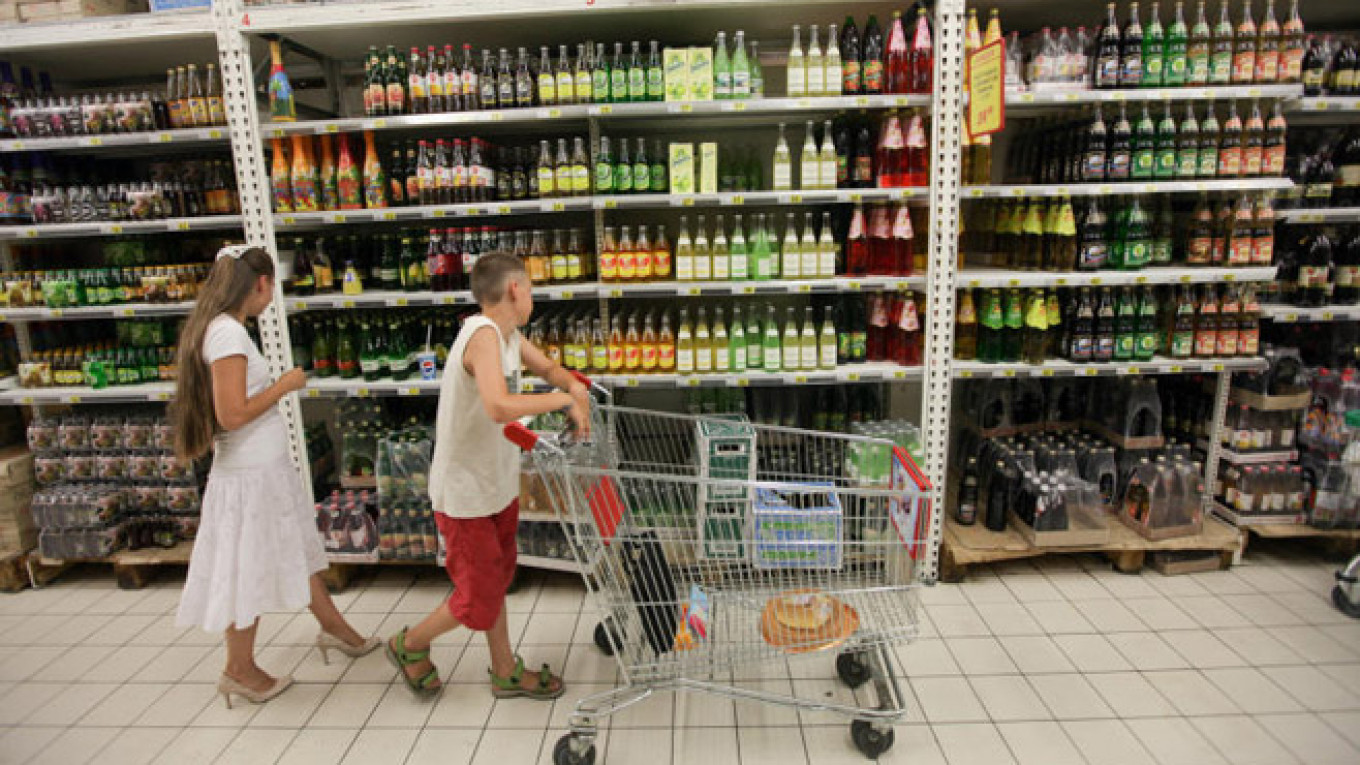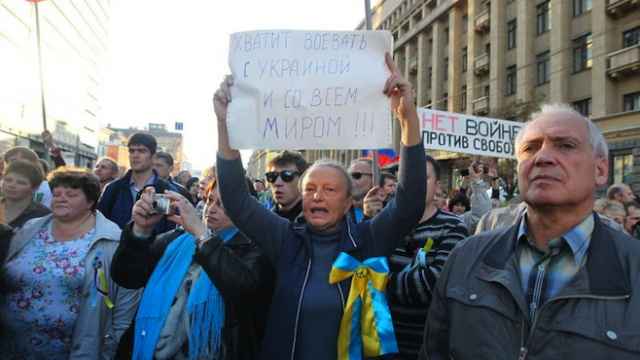Moscow's city parliament on Wednesday declared a ban on sales of the potent alcoholic energy drinks that have become favorites among young Muscovites.
The beverages, which are typically sold under snappy, youthful names like Red Devil and Jaguar, must now be pulled from shelves by May 1, when the ban comes into effect.
The parliamentarian who spearheaded the ban, Kirill Shchitov, said previously that around 70 percent of young Moscow residents imbibe alcoholic energy drinks, daily newspaper Kommersant reported.
The drinks are less than popular in the city as a whole, however. Of the 280,000 people surveyed in a poll on the city government's Active Citizen voting platform, 80 percent supported the ban.
A number of other Russian regions have implemented similar bans.
Russia is not the first country to crack down on beverages that mix alcohol and stimulants. The U.S. Food and Drug Administration in 2010 warned four companies — including the producer of the popular energy drink Four Loko, known on college campuses as "blackout in a can” — that the caffeine added to their malt beverages was considered an “unsafe food additive.”
The Moscow law will apply to beverages with an alcohol content of between 1.2 and 9 percent that also contain caffeine or other stimulants, Kommersant reported.
Fines for violating the law will range from 5,000 to 10,000 rubles ($80 to $160) for individual sellers and up to 100,000 rubles ($1,600) for companies.
Raids will be organized with participation from about 1,800 municipal deputies and members of community organizations to enforce the law, state news agency RIA Novosti reported.
Correction: An earlier version of this article stated incorrectly that the U.S. government ordered Four Loko producer Phusion Projects to cease production of its alcoholic energy drink. In fact, the U.S. Food and Drug Administration (FDA) did not order Phusion Projects to cease production. The FDA instead sent an official warning to Phusion Projects and three other companies on Nov. 17, 2010, stating that the caffeine added to their malt alcoholic beverages was an “unsafe food additive.” Phusion Projects began voluntarily producing a reformulated version of Four Loko, which removed caffeine, guarana and taurine from the beverage, on Nov. 18, 2010, the company told The Moscow Times.
A Message from The Moscow Times:
Dear readers,
We are facing unprecedented challenges. Russia's Prosecutor General's Office has designated The Moscow Times as an "undesirable" organization, criminalizing our work and putting our staff at risk of prosecution. This follows our earlier unjust labeling as a "foreign agent."
These actions are direct attempts to silence independent journalism in Russia. The authorities claim our work "discredits the decisions of the Russian leadership." We see things differently: we strive to provide accurate, unbiased reporting on Russia.
We, the journalists of The Moscow Times, refuse to be silenced. But to continue our work, we need your help.
Your support, no matter how small, makes a world of difference. If you can, please support us monthly starting from just $2. It's quick to set up, and every contribution makes a significant impact.
By supporting The Moscow Times, you're defending open, independent journalism in the face of repression. Thank you for standing with us.
Remind me later.






